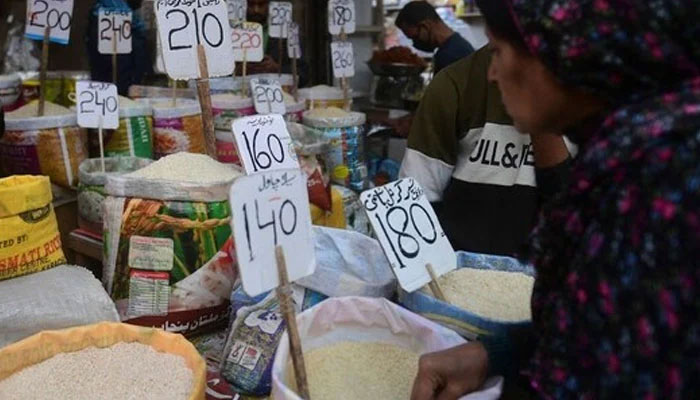The taxed and the untaxed
Key takeaway from Pakistan Economic Survey was cost of tax exemptions government incurred in FY24
During the launch ceremony of the Pakistan Economic Survey held a day before the budget speech, Finance Minister Muhammad Aurangzeb looked relatively comfortable about the government’s tax plan. The key takeaway from the Pakistan Economic Survey was the cost of tax exemptions the government incurred in FY24. This cost jumped to Rs3.9 trillion – showing a shocking 73 per cent increase from last year. During the ceremony, the minister announced that there would be no “sacred cows” and everyone had to pay taxes. The government looked to be somewhat serious about this, as has been reflected in the budget presented on Wednesday (June 12) which has withdrawn several exemptions as the government looks to raise an additional Rs1.8 trillion through new taxes, including withdrawal of exemptions. This will not be taken well by most people, which is expected. No one is enthusiastic about paying taxes, especially to a government that does not provide basic facilities to its people. However, the withdrawal of exemptions is perhaps the only saving grace for the government.
As much as people hate them, taxes are something no one can – or should – escape from. A burden of Rs3.8 trillion on the government makes us perpetually in need of foreign loans, which often come at a huge cost. Not only does that force us to listen to lenders’ diktats, but it also hurts our image in the world. Rebates/tax exemptions are vital for improving economic activities. Almost all countries use them, but they do have a phasing-out plan after a certain period. Take the UAE, for example; its no-taxes feature attracted thousands of businesses to the small oil state. Now, diversifying its economy, it has introduced several new taxes.
For so long, Pakistan’s tiny elite has enjoyed tax exemptions. It is unfair to the people – including the salaried class that keeps getting crushed under the burden of taxes – to keep financing the lifestyle of the privileged few. In a country where a majority lacks access to a good transportation network, low taxes for luxury vehicles are criminal. Pakistan has a problem of conspicuous consumption where the elite want to spend on things that they think are essential to boost their financial wellbeing. This ostentatious display of wealth then demands the government to go lenient on sectors. This cannot go on for long. Even the criticism raised against the taxes rests on the shoulders of the invisible consumers who, according to critics, will find it difficult to bear the end prices hiked by new taxes. What they choose to ignore is the second option they can take: reduce their profit margin for a few years, which is usually in addition to the salaries and drawings extracted by business owners. While it is true that taxes are rarely celebrated, it is important to say yes to programmes that pave the way for fair taxation.
Having said this, the government still has a long way to go to raise its revenue to a level that helps it break free from external loans. It has once again failed to address the clearly visible elephant in the room: the untaxed agriculture sector. Instead of expanding the tax net, the government focused on deepening the already burdened tax net. It is good to tax the exempted, but it is rather frustrating that the government has decided to not touch the untaxed. The cost of this leniency is then borne by the salaried class or by ordinary people in the form of increased sales tax. What is stopping the government from taking the necessary measures?
-
 Camila Mendes Finally Reveals Wedding Plans With Fiancé Rudy Mancuso
Camila Mendes Finally Reveals Wedding Plans With Fiancé Rudy Mancuso -
 Beatrice, Eugenie Blindsided By Extent Of Sarah Ferguson’s Epstein Links
Beatrice, Eugenie Blindsided By Extent Of Sarah Ferguson’s Epstein Links -
 Girl And Grandfather Attacked In Knife Assault Outside Los Angeles Home
Girl And Grandfather Attacked In Knife Assault Outside Los Angeles Home -
 Super Bowl Halftime Show 2026: What Did Trump Say About Bad Bunny?
Super Bowl Halftime Show 2026: What Did Trump Say About Bad Bunny? -
 Piers Morgan Defends Bad Bunny's Super Bowl Performance, Disagrees With Trump Remarks
Piers Morgan Defends Bad Bunny's Super Bowl Performance, Disagrees With Trump Remarks -
 Andrew Lands In New Trouble Days After Royal Lodge Eviction
Andrew Lands In New Trouble Days After Royal Lodge Eviction -
 Instagram, YouTube Addiction Case Trial Kicks Off In California
Instagram, YouTube Addiction Case Trial Kicks Off In California -
 Agentic Engineering: Next Big AI Trend After Vibe Coding In 2026
Agentic Engineering: Next Big AI Trend After Vibe Coding In 2026 -
 Keke Palmer Makes Jaw-dropping Confession About 'The Burbs'
Keke Palmer Makes Jaw-dropping Confession About 'The Burbs' -
 Cher Sparks Major Health Concerns As She Pushes Herself To Limit At 79
Cher Sparks Major Health Concerns As She Pushes Herself To Limit At 79 -
 Former NYPD Detective Says Nancy Guthrie's Disappearance 'could Be Hoax'
Former NYPD Detective Says Nancy Guthrie's Disappearance 'could Be Hoax' -
 King Charles Publicly Asked If He Knew About Andrew's Connection To Epstein
King Charles Publicly Asked If He Knew About Andrew's Connection To Epstein -
 Jessie J Addresses Pregnancy Rumors After Sporting Belly Bump
Jessie J Addresses Pregnancy Rumors After Sporting Belly Bump -
 Channing Tatum Leaves Fans Scratching Their Heads With Message About South Korea
Channing Tatum Leaves Fans Scratching Their Heads With Message About South Korea -
 Emma Roberts Stars In 'A Body In The Woods'
Emma Roberts Stars In 'A Body In The Woods' -
 'Our Estrangements Can Kill Us': Meghan's Co-star Weighs In On Anthony Hopkins Interview
'Our Estrangements Can Kill Us': Meghan's Co-star Weighs In On Anthony Hopkins Interview




